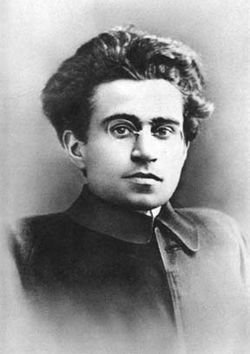Antonio Gramsci Quote
The crisis creates situations which are dangerous in the short run, since the various strata of the population are not all capable of orienting themselves equally swiftly, or of reorganizing with the same rhythm. The traditional ruling class, which has numerous trained cadres, changes men and programmes and, with greater speed than is achieved by the subordinate classes, reabsorbs the control that was slipping from its grasp. Perhaps it may make sacrifices, and expose itself to an uncertain future by demagogic promises; but it retains power, reinforces it for the time being, and uses it to crush its adversary and disperse his leading cadres, who cannot be be very numerous or highly trained.
The crisis creates situations which are dangerous in the short run, since the various strata of the population are not all capable of orienting themselves equally swiftly, or of reorganizing with the same rhythm. The traditional ruling class, which has numerous trained cadres, changes men and programmes and, with greater speed than is achieved by the subordinate classes, reabsorbs the control that was slipping from its grasp. Perhaps it may make sacrifices, and expose itself to an uncertain future by demagogic promises; but it retains power, reinforces it for the time being, and uses it to crush its adversary and disperse his leading cadres, who cannot be be very numerous or highly trained.
Related Quotes
About Antonio Gramsci
During his imprisonment, Gramsci wrote more than 30 notebooks and 3,000 pages of history and analysis. His Prison Notebooks are considered a highly original contribution to 20th-century political theory. Gramsci drew insights from varying sources—not only other Marxists but also thinkers such as Niccolò Machiavelli, Vilfredo Pareto, Georges Sorel, and Benedetto Croce. The notebooks cover a wide range of topics, including the history of Italy and Italian nationalism, the French Revolution, fascism, Taylorism and Fordism, civil society, the state, historical materialism, folklore, religion, and high and popular culture.
Gramsci is best known for his theory of cultural hegemony, which describes how the state and ruling capitalist class—the bourgeoisie—use cultural institutions to maintain wealth and power in capitalist societies. In Gramsci's view, the bourgeoisie develops a hegemonic culture using ideology rather than violence, economic force, or coercion. He also attempted to break from the economic determinism of orthodox Marxist thought, and so is sometimes described as a neo-Marxist. He held a humanistic understanding of Marxism, seeing it as a philosophy of praxis and an absolute historicism that transcends traditional materialism and traditional idealism.
